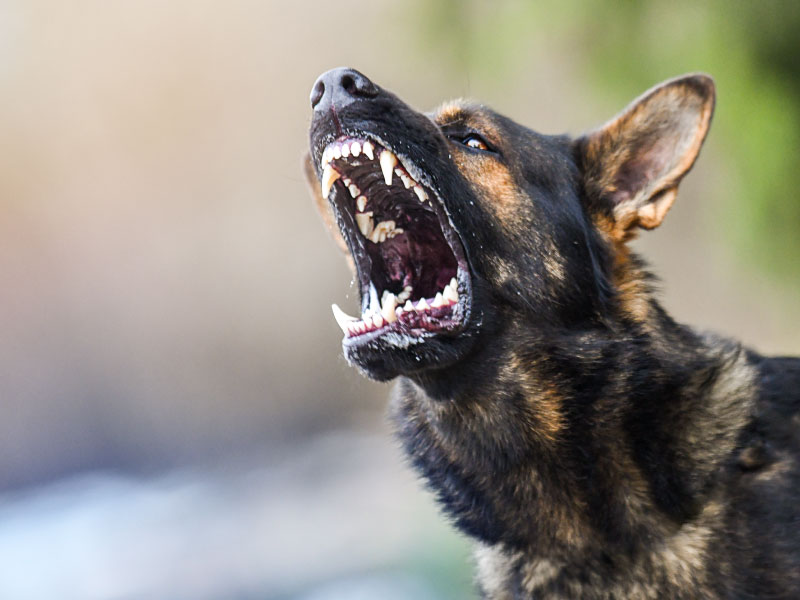As the warm summer months begin, more people take to the outdoors with their furry companions, enjoying walks in parks, neighborhoods, and dog-friendly areas. However, with this increased activity comes a potential risk: dog bites.
In this blog, we address common questions surrounding dog bites during summer to help you stay informed and safe.
1. What are the statistics on dog bites during summer?
According to the American Veterinary Medical Association (AVMA), approximately 4.5 million people experience dog bites each year in the United States. Furthermore, the Centers for Disease Control and Prevention (CDC) notes that children are at a higher risk of being bitten by dogs during summer months, especially in outdoor settings such as parks and playgrounds.
2. Are dog bites more common in unleashed dogs?
Research indicates that unleashed dogs pose a higher risk of biting compared to dogs on leashes. This is often due to factors such as lack of control and socialization. For instance, a child recently encountered an unleashed dog in a park in Chicago, resulting in a bite and subsequent trauma for the victim.
3. What should I do if a dog bites me?
If you experience a dog bite, it’s crucial to seek medical attention promptly, especially for deep wounds or punctures that may lead to infections. Additionally, report the incident to animal control or local authorities to document the incident and prevent future incidents involving the same dog.
4. Can I sue for damages after a dog bite?
Yes, you may have legal grounds to pursue compensation for damages resulting from a dog bite. This can include medical bills, lost wages due to inability to work, pain, and suffering. For example, a postal worker was unable to complete deliveries successfully after being attacked twice by the same dog in a North Charleston, South Carolina locality.
5. How can I prevent dog bites?
Preventing dog bites starts with understanding canine behavior and taking proactive measures. Approach unfamiliar dogs cautiously, ask permission from the owner before petting, and avoid disturbing dogs while they’re eating, sleeping, or caring for puppies. Educating children on safe interactions with dogs is also crucial to prevent incidents.
6. What are the legal implications for dog owners?
Dog owners have a legal responsibility to control their pets and prevent them from causing harm to others. Negligence on the part of the owner, such as failing to restrain a known aggressive dog or not providing adequate training, can result in liability for damages caused by the dog’s actions.
7. Are certain breeds more likely to bite?
While any dog can bite under certain circumstances, certain breeds may have a higher tendency for aggression due to genetics, upbringing, or lack of socialization. However, breed-specific legislation is controversial and varies by location, focusing on responsible ownership and prevention rather than targeting specific breeds.
8. How can I report a dangerous dog?
To report a dangerous or aggressive dog, contact your local animal control or authorities. Provide detailed information about the dog’s behavior, location, and any previous incidents if known. Prompt reporting can prevent future incidents and ensure public safety.
9. What should I do if my dog bites someone?
If your dog bites someone, take immediate steps to ensure the victim receives the necessary medical attention. Cooperate with authorities and follow any legal requirements, such as quarantine periods for the dog, to address the incident responsibly and prevent further harm.
10. How can legal representation help after a dog bite?
Seeking legal representation after a dog bite can be crucial in navigating complex legal processes and protecting your rights. A skilled personal injury attorney can assess your case, gather evidence, negotiate with insurance companies, and advocate for fair compensation on your behalf. Legal representation ensures that your interests are protected and helps you pursue justice for the injuries and damages you’ve suffered due to a dog bite incident.
Seeking legal support after a dog bite incident
A dog bite incident can leave victims with physical injuries, emotional distress, and mounting medical expenses. At Karell Trial Attorneys, we understand the complexities surrounding dog bite cases, and our experienced team of personal injury attorneys is here to help you navigate through the aftermath and seek the compensation you deserve.
At Karell Trial Attorneys, we prioritize our clients’ well-being and strive to provide compassionate legal support during challenging times. If you’ve been affected by a dog bite incident, let us be your advocates and fight for the justice and compensation you deserve.
Understanding dog bite liability in Georgia
In Georgia, dog owners can be held liable for injuries caused by their pets if it can be proven that the owner’s negligence or lack of proper control resulted in the attack. Unlike some states, Georgia does not follow the “one-bite rule,” which means dog owners can be held responsible for their pet’s actions even if it’s the first time the dog has bitten someone.
How we can assist you
Consider a scenario where a child is bitten by an unleashed dog while playing in a park during summer. Our team at Karell Trial Attorneys can investigate the incident, gather witness statements, and work with medical professionals to document the extent of the child’s injuries. We then use this evidence to negotiate with the dog owner’s insurance company for compensation to cover medical bills and emotional trauma caused by the attack.
When you choose Karell Trial Attorneys to handle your dog bite case, you can expect comprehensive support and diligent advocacy. If you or a loved one have been a victim of a dog bite incident, don’t hesitate to seek legal counsel from our experienced personal injury attorneys. Contact Karell Trial Attorneys for a free consultation and let us fight for your rights and fair compensation as you focus on your recovery and well-being.







